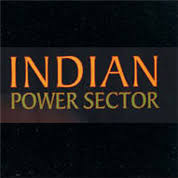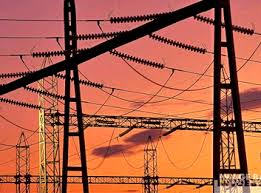
Sources:BS:Katya B Naidu / Mumbai March 18, 2010, 0:39 IST
Japanese power companies, including Tokyo Electric
Power Company (Tepco) and J-Power, seek to make
their presence felt in India.“They might not look at the bigger projects like ultra mega power projects
(UMPP) right away, but will look at projects with a size of 1,200 to 1,400 Mw,”
said an industry source. These companies were looking at
opportunities in the Indian power sector and might bid
for some power projects soon, sources added.
Tepco, the largest Japanese and the world’s fourth-largest
power generator, has a capacity of 64.3 gigawatts,
while J-Power, which operates 67 plants, has a
capacity of 16,985 Mw. E-mails sent to both
companies remained unanswered.

India has plans to add 78,000 Mw of power
generation capacity in the 11th Five Year Plan and these
companies want to seize this opportunity.
“Japanese companies can look at the opportunity as
they already have a presence in the equipment side of
the power market. India is a huge market, with high
requirement of electricity, leading to a demand supply
skew towards power generators. This is a country which
requires anywhere between 100,000 to 200,000 Mw of
power in the short to medium term,” said
Kuljit Singh, head-infrastructure, Ernst & Young.

Foreign companies, able to procure debt at a lower interest cost,
can be an advantage in this capital-intensive sector, according to
experts. “With two per cent interest cost and fixed returns of
eight-nine per cent, the power sector makes for a good
investment for foreign companies. Merchant power sales also
offer good profits,” said a Mumbai-based equity analyst.
Foreign companies will also have their share of challenges
in the Indian market. “The Indian market is a greenfield play
where you require assistance from many government agencies
for land acquisition, fuel, water, environment and other clearances.
Foreign companies might find it tough to handle such aspects on their own,” said Singh.

This has been one of the reasons for many foreign power
utilities to stay away from bidding, though the government allows
100 per cent FDI in the automatic route in generation, transmission,
distribution and power trading except in atomic power.
Besides, the negative publicity of the Dabhol and Enron
scandals also kept foreign investors at bay.
In 1992, many foreign power companies came to the
country and returned due to various issues. However,
some foreign companies made their presence felt,
although in a small way.
Genting, a Malaysian power company,
has bid for power projects along with Lanco Infratech,
and both these companies own a 370-Mw gas-basedpower project in Kondapalli, near Vijayawada in Andhra Pradesh.
American electricity major AES operates and owns a minority
stake in a 420-Mw coal-fired power plant in Orissa.

Hong Kong-based power utility China Light and Power (CLP),
which forayed into India a decade back, said that the situation
had changed drastically in the last few years. “Until 2004, the
experience was difficult, especially with payment defaults from
off-takers. Projects were not awarded on a competitive basis
and foreign companies were at a disadvantage. Last few years
have been positive, reforms have set in and all our dues have
been paid,” said Rajiv Ranjan Mishra, MD of CLP India.

CLP has two gas-based power projects in Gujarat, fou
r wind projects in Gujarat and Maharashtra, Karnataka
and Tamil Nadu, and a coal-fired project in Haryana.
The company plans to tread cautiously when it comes
to bidding for new projects.
“The preferred size of projects that we would like
to bid for will be in the range of 1,000-1,500 Mw. UMPPs are way too big.”
No comments:
Post a Comment